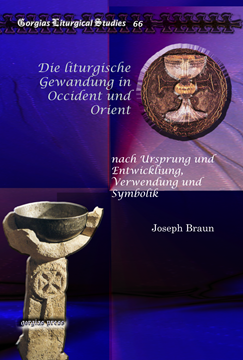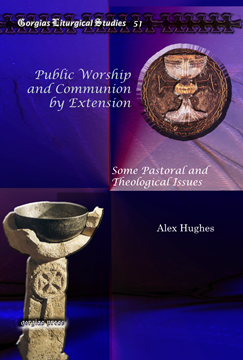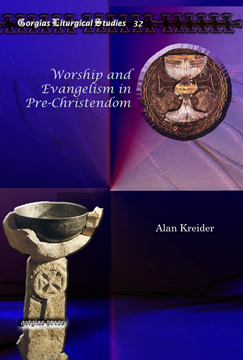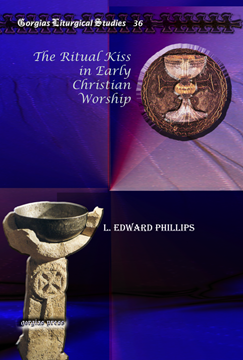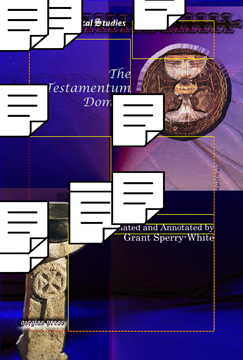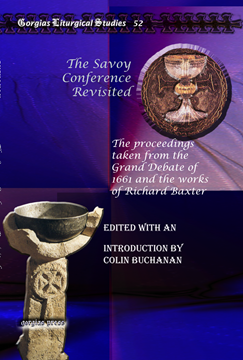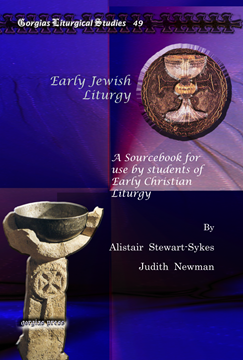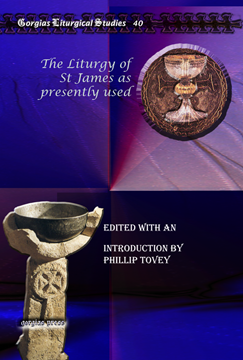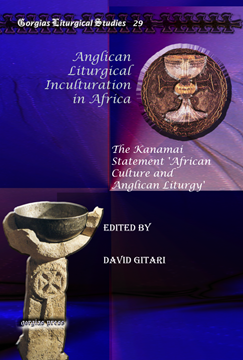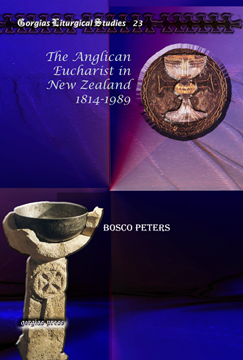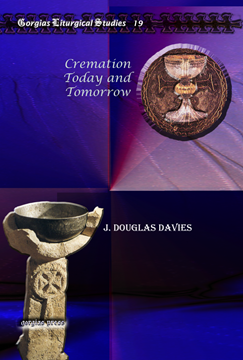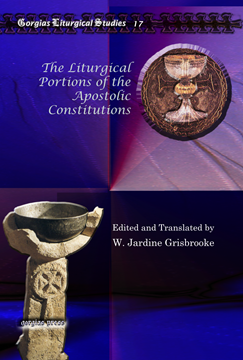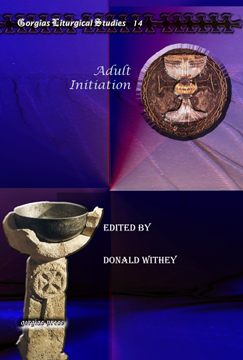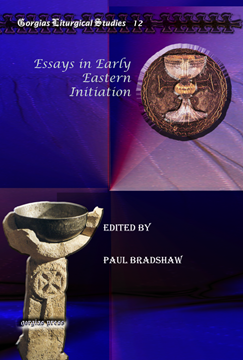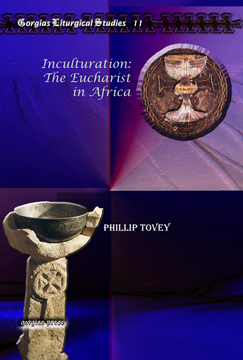Kiraz Liturgical Studies
This series provides a venue for studies about liturgies as well as books containing various liturgies. Making liturgical studies available to those who wish to learn more about their own worship and practice or about the traditions of other religious groups, this series includes works on service music, the daily offices, services for special occasions, and the sacraments.
The Syrian Churches
Their Early History, Liturgies and Literature
Series: Kiraz Liturgical Studies 68
ISBN: 978-1-61143-475-0
History of the Syriac-speaking churches, with comparative liturgies, and the Peshitta of the Gospels, translated into English.
$218.00 (USD)
The Liturgy and Ritual of the Celtic Church
Third Edition with New Material
By Frederick Edward Warren; Introduction by Neil Xavier O'Donoghue
Series: Kiraz Liturgical Studies 64
ISBN: 978-1-60724-100-3
This is a new edition of Warren's classic study on the Liturgy and Ritual of the Celtic Church. A new introduction and up-to-date bibliography is provided. In addition two other important editions of early Irish liturgical books are reproduced in this volume: Bartholemew MacCarthy's edition of The Stowe Missal and Whitley Stokes edition of an old Irish Tractate on the Consecration of a Church.
$205.00 (USD)
Die liturgische Gewandung in Occident und Orient
nach Ursprung und Entwickliung, Verwendung und Symbolik
By Joseph Braun
Series: Kiraz Liturgical Studies 66
ISBN: 978-1-61719-744-4
This volume, written by a Jesuit, discusses the history and use of liturgical garments.
$284.00 (USD)
Public Worship and Communion by Extension
Some Pastoral and Theological Issues
By Alex Hughes
Series: Kiraz Liturgical Studies 51
ISBN: 978-1-60724-402-8
A thorough look at the meaning of administering and receiving communion away from the place of a true celebration of the eucharist. Well-based theological reflections give rise to some very awkward questions for the rite and its practitioners.
$94.00 (USD)
Worship and Evangelism in Pre-Christendom
By Alan Kreider
Series: Kiraz Liturgical Studies 32
ISBN: 978-1-60724-383-0
This booklet explores the Christianity of the days before it became an official religion of the Roman Empire. It considers the impact of various areas of church life in this initial state.
$139.00 (USD)
The Konat Syriac Orthodox Anaphoras
Edited by Abraham Konat
Series: Kiraz Liturgical Studies 65
ISBN: 978-1-60724-849-1
This collection of eighteen Syriac Orthodox Anaphoras is an important source for scholars and clergy. Produced in Kerala by Abraham Konat, the son of the known scholar Matthew Konat, it is still used in the liturgical practices of the Syriac church.
$172.00 (USD)
The Ritual Kiss in Early Christian Worship
Series: Kiraz Liturgical Studies 36
ISBN: 978-1-60724-387-8
This study collates the scattered evidence in the New Testament patristic literature for its practice, and examines its spiritual and quasi-sacramental significance, including its relation to the role of the Spirit.
$138.00 (USD)
The Testamentum Domini
Translated and Annotated by Grant Sperry-White
Series: Kiraz Liturgical Studies 22
ISBN: 978-1-60724-373-1
A Text for Students, with Introduction, Translation and Notes.
$138.00 (USD)
Calvin and Bullinger on the Lord's Supper
By Paul Rorem
Series: Kiraz Liturgical Studies 16
ISBN: 978-1-60724-367-0
An investigation of sixteenth-century Reformed views on the Lord's Supper from two of the leaders of that tradition. The impasse and resolution between John Calvin and Zwingli's successor Heinrich Bullinger provide the background for this discussion.
$110.00 (USD)
A Liturgical Glossary
Compiled by Michael Sansom
Series: Kiraz Liturgical Studies 59
ISBN: 978-1-60724-351-9
Liturgy is a subject which very quickly throws up a barrage of unfamiliar words to defeat the student, the lay enquirer—and even a good many clergy. The basis of this glossary was a simple word list compiled for students in the Cambridge Federation of Theological Colleges, but it has been expanded and rewritten by students at Ridley Hall.
$138.00 (USD)
Celebrating Forgiveness
An original text drafted by Michael Vasey
Series: Kiraz Liturgical Studies 56
ISBN: 978-1-60724-348-9
This Liturgical Study is dedicated to the memory of Michael Vasey, liturgy tutor at St John's College, Durham (1975-1998), and a member of the Church of England's Liturgical Commission (1985-1998), who died in June 1998. It reproduces the text which he originally drafted for the Commission in the early 1990s, as amended both by the Commission and by the House of Bishops, on which discussion was effectively suspended in 1995. At that stage the Commission propsed to further the discussion on penitence and reconciliation in the church by publishing its proposed text together with some background essays, but the project, which Michael was to have edited, was halted by his untimely death.
$138.00 (USD)
The Savoy Conference Revisited
The proceedings taken from the Grand Debate of 1661 and the works of Richard Baxter
Edited with an Introduction by Colin Buchanan
Series: Kiraz Liturgical Studies 52
ISBN: 978-1-60724-403-5
The records of the Savoy Conference come from seventeenth century sources, and they were edited and reproduced in two nineteenth century volumes: E.Cardwell's A History of Conferences and Other Proceedings connected with the Revision of The Book of Common Prayer; from the year 1558 to the year 1690 (1841, and 2nd ed. 1849) and G.Gould, Documents relating to the Settlement of the Church of England by the Act of Uniformity of 1662 (London, 1862). Both present the Presbyterians' 'Exceptions' tabled at the Savoy Conference in 1661, and the Bishops' (somewhat unyielding) Answers to the Exceptions - but neither editor brings the texts together. This Joint Study presents the General Exceptions in parallel column with their respective Answers.
$140.00 (USD)
Church and Worship in Fifth-Century Rome
The Letter of Innocent 1 to Decentius of Gubbio
Series: Kiraz Liturgical Studies 50
ISBN: 978-1-60724-401-1
The letter comes from the fourth century and is therefore very significant for studies of early Roman liturgical history - and is frequently quoted. Here the series provides the full text with translation and notes.
$138.00 (USD)
Early Jewish Liturgy
A Sourcebook for use by students of Early Christian Liturgy
Series: Kiraz Liturgical Studies 49
ISBN: 978-1-60724-400-4
Whereas many studies suggest or presuppose some link between Christian liturgical origins and the practices of Judaism the Jewish sources are hard to find and understand for Christian students without any background in early Judaism and its literature. This book presents some of the relevant sources in clear English, with accompanying material which sets the sources in their context and introduces the student to the debate about the relationship between Jewish and early Christian liturgy.
$110.00 (USD)
Anglican Missals and their Canons
1549, Interim Rite and Roman
By Mark Dalby
Series: Kiraz Liturgical Studies 41
ISBN: 978-1-60724-392-2
With the 1552 prayer book the weaponry of the earlier liturgical works changed. This booklet discusses the missals and canons up to the modern period.
$138.00 (USD)
The Liturgy of St James as presently used
Edited with an Introduction by Phillip Tovey
Series: Kiraz Liturgical Studies 40
ISBN: 978-1-60724-391-5
The Liturgy of St James is used by a number of churches. This gives the Greek, Syriac and Reformed (Mar Thoma Syrian Church) texts in parallel columns for comparison.
$138.00 (USD)
Anglican Orders and Ordinations
Edited by David Holeton
Series: Kiraz Liturgical Studies 39
ISBN: 978-1-60724-390-8
Essays and Reports from the Interim Conference at Jarvenpaa, Finland, of the International Anglican Liturgical Consultation, 4-9 August 1997.
$138.00 (USD)
Anglican Liturgical Inculturation in Africa
The Kanamai Statement 'African Culture and Anglican Liturgy'
Edited by David Gitari
Series: Kiraz Liturgical Studies 29
ISBN: 978-1-60724-380-9
With Introduction, Papers read at Kanamai, and a first Response.
$110.00 (USD)
The Sacramentary of Sarapion of Thmuis
Translated and Annotated by R. J. S. Barrett-Lennard
Series: Kiraz Liturgical Studies 26
ISBN: 978-1-60724-377-9
A text for Students, with an introduction, translation and commentary.
$138.00 (USD)
The Anglican Eucharist in New Zealand 1814-1989
By Bosco Peters
Series: Kiraz Liturgical Studies 23
ISBN: 978-1-60724-374-8
The background, beginnings, and controversies of the Eucharistic developments in New Zealand are presented. The twenieth century is divded into four periods to facilitate the exploration.
$138.00 (USD)
Cremation Today and Tomorrow
Series: Kiraz Liturgical Studies 19
ISBN: 978-1-60724-370-0
This booklet considers the implications of cremation, both theological and pastoral aspects. Clerical and lay points of view are presented.
$138.00 (USD)
The Liturgical Portions of the Apostolic Constitutions
Edited and Translated by W. Jardine Grisbrooke
Series: Kiraz Liturgical Studies 17
ISBN: 978-1-60724-368-7
A text for students, with translation, introduction and annotations.
$149.00 (USD)
Adult Initiation
Edited by Donald Withey
Series: Kiraz Liturgical Studies 14
ISBN: 978-1-60724-365-6
Papers delivered at the Conference of the Society for Liturgical Study 1988 by David M Thompson, Colin Buchanan, Christopher J Walsh and Peter W Ball.
$138.00 (USD)
Essays in Early Eastern Initiation
Edited by Paul Bradshaw
Series: Kiraz Liturgical Studies 12
ISBN: 978-1-60724-363-2
Paul Bradshaw, Maxwell Johnson, and Ruth Meyers write on baptismal practice in the Alexandrian tradition, reconciling Cyril and Egeria on the catechetical process, and the structure of the Syrian baptismal rite.
$110.00 (USD)
The Eucharist in Africa
Series: Kiraz Liturgical Studies 11
ISBN: 978-1-60724-362-5
An introduction to the issues surrounding inculturation, with particular reference to the Eucharist in the African context. Discussion is held of a variety of denominations and the text of the Eucharistic prayer for the new Kenyan service is included.
$138.00 (USD)



